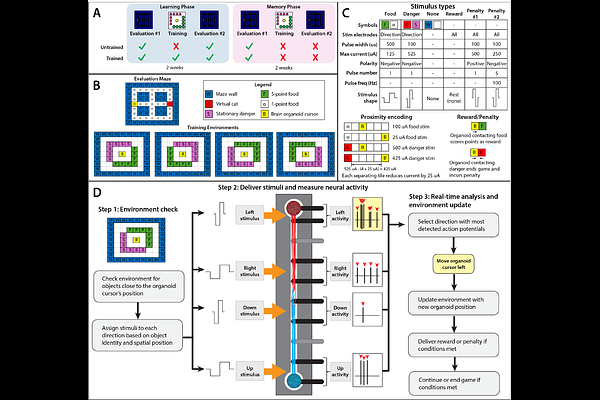Long-Term Potentiation and Closed-Loop Learning in Paired Brain Organoids for CNS Drug Discovery

Long-Term Potentiation and Closed-Loop Learning in Paired Brain Organoids for CNS Drug Discovery
Rountree, C.; Schmidt, E.; Coungeris, N.; Alstat, V.; LaCroix, A. S.; Morris, M.; Moore, M. J.; Curley, J. L.
AbstractLearning and memory, central to cognitive function and critical targets for drug discovery in neurological disorders, fundamentally rely on electrophysiological mechanisms such as short-term potentiation (STP) and long-term potentiation (LTP). We developed an embedded electrode array (EEA) platform supporting electrophysiological integration of paired CNS-3D human brain organoids derived from induced pluripotent stem cells (iPSCs), interconnected via guided axonal growth. Using open-loop stimulation protocols, we demonstrated robust, pharmacologically tunable STP and LTP in trained versus untrained organoid networks, confirmed by pharmaceutical modulation with elevated brain-derived neurotrophic factor (BDNF) enhancing LTP, and NMDA receptor blockade (DL-AP5) preventing its induction. Furthermore, a closed-loop \"maze-game\" paradigm employing reinforcement learning principles elicited adaptive behavioral responses, demonstrating functional learning capabilities dependent on exogenous BDNF. This integrated platform provides a powerful tool for modeling human synaptic plasticity and cognitive processes in vitro, significantly advancing opportunities for therapeutic discovery in cognitive disorders and contributing foundational insights to the emerging field of organoid intelligence.